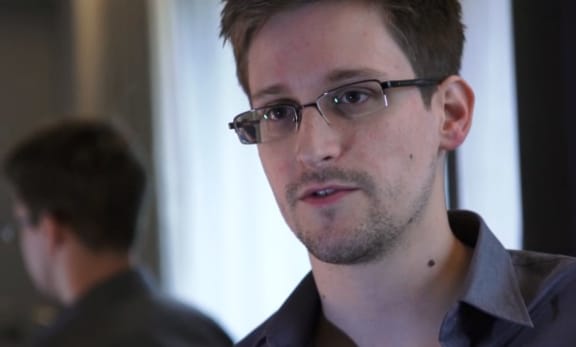A judge in the United States has ruled the National Security Agency's mass collection of telephone data unconstitutional.
Federal District Judge Richard Leon said the electronic spy agency's practice was an "arbitrary invasion".
The agency's collection of "metadata" including telephone numbers and times and dates of calls was brought to light by ex-NSA contractor Edward Snowden, the BBC reports.
The White House, meanwhile, has dismissed the suggestion Mr Snowden receive amnesty if he stopped leaking documents.

Edward Snowden Photo: AFP
In his ruling in a Washington DC federal court on Monday, Mr Leon called the NSA's surveillance programme "indiscriminate" and an "almost Orwellian technology that enables the government to store and analyse the phone metadata of every telephone user in the United States".
The ruling came in a lawsuit brought by conservative activist Larry Klayman, who challenged the NSA's collection of metadata related to his Verizon account and that of a client.
Mr Leon ruled the plaintiffs had demonstrated "a substantial likelihood of success on the merits of their Fourth Amendment claim", referring to the clause in the US constitution that bars unreasonable search and seizure.
Through Glenn Greenwald, a journalist with whom he has close ties, Mr Snowden issued a statement hailing the ruling.
Amnesty for Snowden ruled out
Earlier, a top NSA official had suggested that a deal could be reached if Mr Snowden stopped leaking documents.
But White House spokesperson Jay Carney said Mr Snowden still faced felony charges for leaking classified data.
Mr Carney said government officials continue to press Russia - where Mr Snowden has been granted asylum - to return him to the US.
"There's been no change in our position," he told reporters.
In comments aired on Sunday, Richard Ledgett - who is head of the NSA's task force investigating damage from Mr Snowden's leaks - discussed the possibility of an amnesty deal on US television.
"My personal view is, yes it's worth having a conversation about," he said.
"I would need assurances that the remainder of the data could be secured, and my bar for those assurances would be very high."
Mr Carney said that the proposal represented Mr Ledgett's "personal opinion" and such decisions were ultimately made by the Department of Justice.

